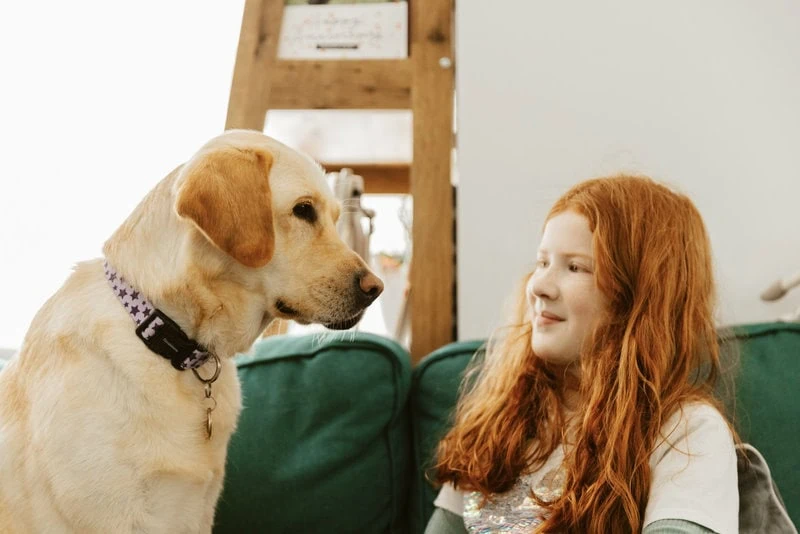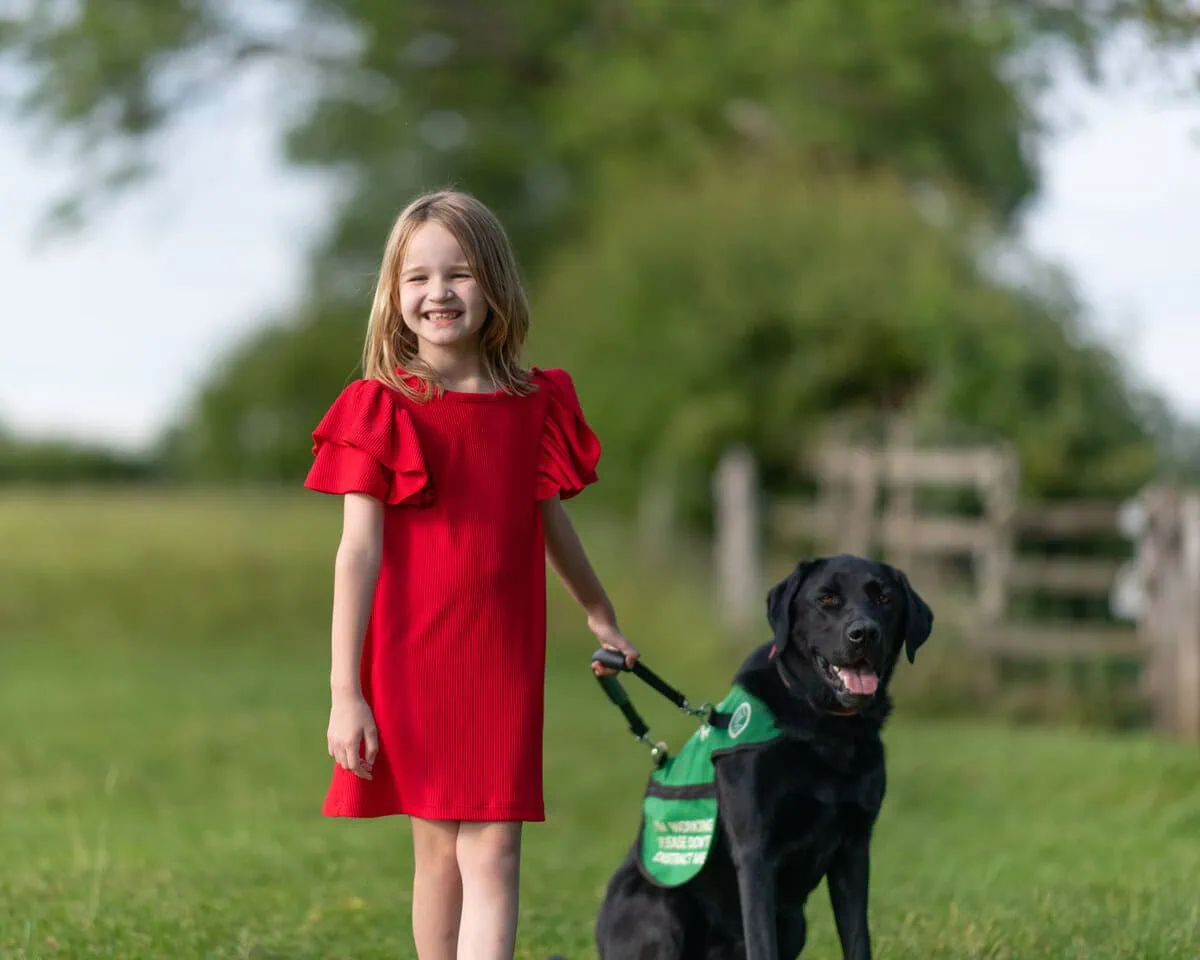
Welcome to life with your dog!
Dogs have been our loyal companions for thousands of years, and with the right start, your dog can enjoy a happy, enriched life by your side. Build a strong bond from the beginning, and they’ll not only be a great companion but a much-loved part of your family.
Choosing the most compatible companion for you and your family
Now that you’ve decided to share your life with a dog, it’s time to think about what kind of dog would best suit your lifestyle. This choice really matters because you and your dog will need to fit into each other’s routines and surroundings. While you can make some adjustments, there are things like where you live that may be harder to change.
For example, a high-energy breed like a springer spaniel may find it difficult to settle in a high-rise flat, as they need plenty of space and regular, active exercise. On the other hand, some dogs prefer calm and quiet and may struggle in a lively household with young children.
It’s also important to remember that every dog is different. Breed traits can be helpful, but individual personality matters just as much. Choosing a dog that is likely to enjoy your way of life gives you both the best chance of building a lasting, happy bond.
Integrating into each other's lives
Bringing a dog of any age into your home will take some adjustment – for you, your family and your dog. How quickly they settle will depend on their confidence, and it’s normal for some dogs to feel anxious or overwhelmed at first.
This early settling-in period is important, so try to stay calm, patient and consistent. Some dogs adapt quickly, while others may need a few weeks or even months before they feel truly at home.
In general, puppies may adjust more easily as they have less past experience to process. A rescue dog, on the other hand, may come with memories of a very different lifestyle or past experiences that left them unsure or fearful.
Giving your new dog time to settle in a calm and quiet environment gives everyone the best chance of building a strong, lasting bond. Let them move at their own pace and trust will grow in time.
Helping your dog settle in: tips for a great start
Welcoming a new dog into your home is exciting, but it also takes time, planning and patience. These tips will help you and your dog get off to the best possible start.
-
Plan ahead and make time
Your dog will need your time and attention to build vital life skills. Make sure you’ve planned for daily walks, playtime and plenty of time just being together.
-
Choose the right training approach
There are lots of helpful books on training and settling in a puppy. If you are buying a book, check that it uses kind, reward-based methods. Avoid anything that promotes dominance, fear or discomfort, these outdated approaches can damage the bond you are building and are still being used by some unregulated trainers.
-
Be prepared before your dog comes home
Make sure you have all the essentials ready and a plan in place to meet your dog’s needs around your existing routine, both at home and at work. -
Essentials to get before your dog arrives:
-
-
Collar or harness
-
-
-
Lead
-
-
-
Identity tag (a legal requirement in the UK)
-
-
-
Washable dog bedding
-
-
-
Water and food bowls suitable for your dog’s size
-
-
-
Good quality dog food appropriate for their age and life stage
-
-
-
Poo bags — it’s our responsibility to clean up after our dogs
-
-
-
Safe toys and appropriate chews
-
-
Give your dog time to settle
If you work, it’s a good idea to take at least a week off when your dog first arrives. During that time, help them get used to their new routine. In the second week, you can slowly start to introduce short periods of time apart. This helps reduce the risk of separation anxiety. If your lifestyle means your dog would be left alone for long stretches, it’s worth considering whether now is the right time to welcome a dog into your life. At the very least, if your dog will be alone for more than four hours, you’ll need to arrange for a friend or family member to visit, take them out and spend time with them.
-
Invest in the relationship
Building a strong bond takes time. Your dog will need to spend a lot of time with you, especially in the early days. A quick half hour here and there isn’t enough. Puppies need careful socialisation to prepare them for the world. They also need regular toilet breaks, small and frequent meals throughout the day, and lots of positive interaction.
-
Go slow with new experiences
Let your dog take their time to sniff and explore your home. Keep things quiet and calm. If you want to learn more, read our guide on your puppy’s first few days.
-
Limit visitors at first
Try to keep things low-key during the early weeks. If you do have visitors, introduce them one at a time in a calm setting. Let your dog choose when to approach, this helps them feel safe and in control. Puppies explore the world with their mouths, so they might nip at hands, feet or clothing. This is normal behaviour, not aggression, and should be managed calmly. With the right guidance, mouthing should stop as they grow. Loud or excitable children can be overwhelming, especially for a dog that is still adjusting. Help children understand how to behave calmly and respectfully around dogs.
-
Make the environment safe and stimulating
When your dog is left alone, make sure they have access to safe toys that offer comfort and mental stimulation. Keep cables tucked away, remove anything dangerous, and check that the space is safe before you leave them.
Teaching your dog skills
You may want to join a dog training class to help build your relationship and develop useful skills together. A good class uses positive, dog-centred methods that encourage trust and make learning fun for both you and your dog.
Training classes are not just for puppies. Older dogs, including rescues, can also benefit from learning in a calm, structured environment. A well-run class offers a safe space for socialisation, guidance and support under the supervision of a trained professional.
Since dog training is not a regulated industry, it’s worth visiting a class before signing up. Look for a provider that creates a friendly, relaxed atmosphere where people and dogs feel supported and can progress at their own pace.
Avoid trainers who use harsh methods or talk about dominance and punishment. What’s described as a "firm" approach may not align with kind, ethical training practices. Look for a trainer who builds confidence through play, praise and reward.
Take your time choosing the right class for you and your dog. In the UK, the Association of Pet Dog Trainers (APDT) is a helpful place to start your search for a reputable, local trainer.
Dog welfare and wellbeing
Choose a veterinary practice you feel confident in. In the UK, all veterinary surgeons are regulated by the Royal College of Veterinary Surgeons (RCVS), which means they have completed approved training and are required to keep their knowledge and skills up to date.
Legal responsibilities
The principal responsibilities of all dog owners in the UK are covered by a number of laws. Read more about the understanding dog law in the UK.
Summary
There is a lot to think about for the first-time owner, so researching and preparing will ensure you give your dog the best possible start.
Help support our life-changing work...
Imagine if everyday tasks were so challenging or physically demanding they affected your quality of life. For many people living with a disability or families with a child with autism, that is their reality. Now imagine if a specially trained four-legged friend could restore your, or your family’s, independence.
The demand for our services is high and we can’t help as many people as we would like to without more funding. Please help us continue to bring people and dogs together to help make everyday life possible in so many extraordinary ways.
Every contribution, whatever size, is important and helps us make a difference.
